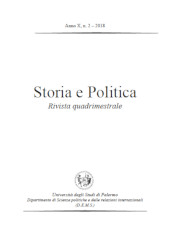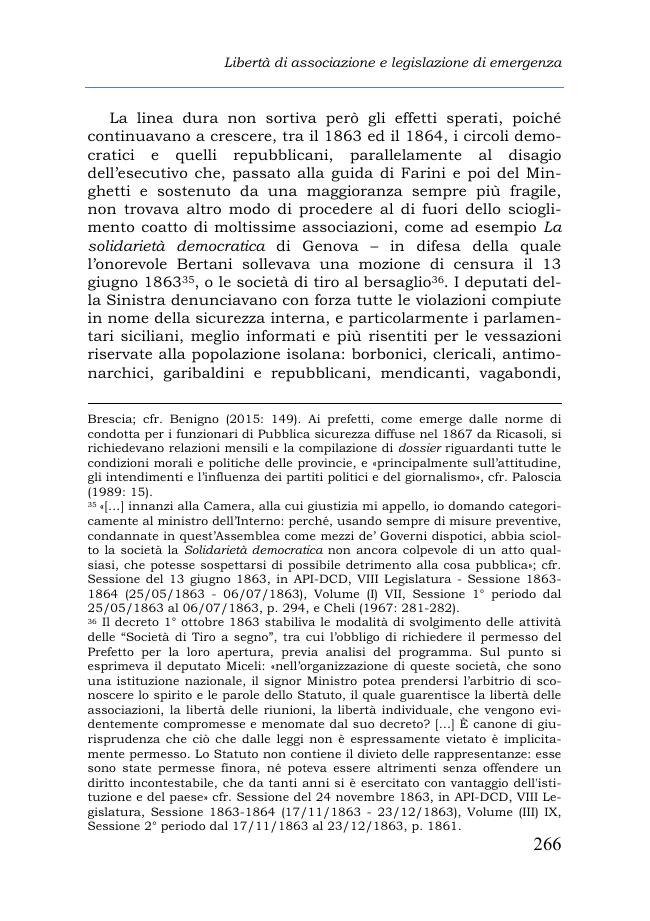2018 - Editoriale Scientifica
Article
Digital Version
Libertà di associazione e legislazione d'emergenza sotto i governi della Destra storica : il caso del Mezzogiorno d'Italia
250-282 p.
- This essay is focused on the particular relationship between the freedom of association - provided for by art. 32 of the Statuto Albertino - and the tendency of the Italian liberal State to restrict and suspend this fundamental right through laws of exceptional nature. These practices was put in place by the governments of the historical Right Party, due to the disorders that took place in Southern Italy starting from 1860. Here, in fact, violent forms of resistance to the established order - "brigandage" and armed gangs - joined to the emergence of a very complex political oppositive front, which included democratic, Bourbonist, republican and clerical components.
- To minimize the spread of these first political associations, identified by the governments as "subversive", the historical Right party choose a specific modus operandi, settled in Italian legal and political culture (not without activating long debates and reflections inside the Parliament and public law scientists): to repress and control dissent, mostly through the state of siege. A long-term trend, as we shall see, for Italian liberal state, which will reach its peak during the rule of the historic Left party. [Publisher's text].
-
Information
ISSN: 2037-0520
KEYWORDS
- Freedom of Association, Sicily, Emergency, Liberal State
-
In this issue
- Tra Machiavelli e Tacito : note sul dibattito politico genovese tra XVI e XVII secolo
- Diderot nel pensiero politico italiano
- Libertà di associazione e legislazione d'emergenza sotto i governi della Destra storica : il caso del Mezzogiorno d'Italia
- Ruggero Grieco e il programma insurrezionale dei comunisti in Sicilia
- Settentrionali e meridionali : Napoleone Colajanni e il dibattito parlamentare sul Mezzogiorno (dicembre 1901)



